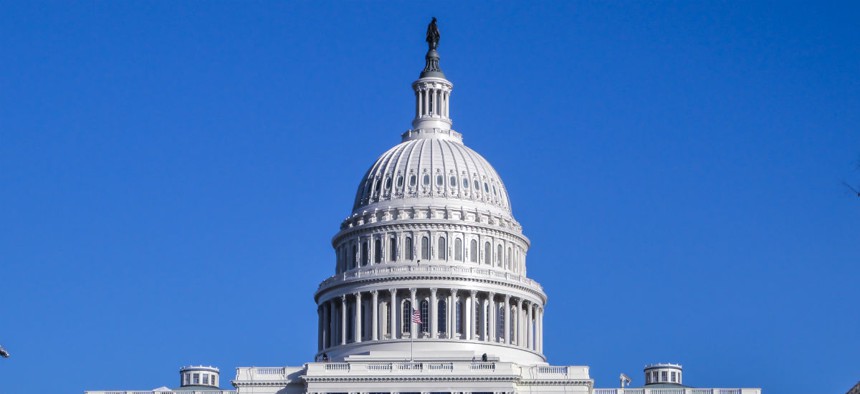
Among the new efforts is a mandate that agencies prepare ethics programs specifically for presidential transitions.
Ethics Rules Receive First Comprehensive Update in 35 Years
Regulations focus on ethical presidential transitions and onboarding.
The federal agency tasked with preventing federal employees from engaging in unethical conflicts of interest has overhauled its basic guidelines, marking the first update of its general program regulations in 35 years.
The Office of Government Ethics issued a final rule titled Executive Branch Ethics Program Amendments to update rules that have gone largely unchanged since 1981, when the agency implemented guidance to enforce the 1978 Ethics in Government Act. The update “clearly defines” OGE’s core principles and goals, spells out the role of agency heads, officials and employees, and establishes new requirements for agencies, OGE Director Walter Shaub said Thursday. The changes will go into effect Jan. 1, 2017.
Among the new efforts is a mandate that agencies prepare ethics programs specifically for presidential transitions, including information for outgoing non-career employees and working with transition teams to ensure new appointees have the information they need. The rule will also require agencies to provide ethics information to new hires in their offer letters. Agencies can use their human resources staff and existing programs to send the information, OGE said, making the distribution a minor lift.
OGE included that provision “so that every prospective new hire will have to make a conscious choice to either become a contributing part of an agency’s strong ethical culture or decline the job offer,” Shaub said.
The rule will also require providing specific ethics responsibilities for employees promoted to supervisory roles at the time they accept their new jobs. It also mandates that appointees receive an ethics briefing within 15 days of their appointments. Only extreme events like natural disasters can legitimize an extension, OGE said, whereas a heavy workload cannot.
Agencies no longer have to track the fulfillment of all training and other requirements for each individual rank-and-file employee. They also do not need to spell out detailed training programs, with OGE noting they “contribute little to the success” of the programs and require a “disproportionately large effort.”
OGE said it would generally use “informal” practices when taking corrective action toward an agency that is not in compliance with its rules. It will do the same for individual federal employees committing non-criminal ethical violations, but the OGE director still holds the right to require an agency or inspector general investigation, as well as to recommend disciplinary action.
The rule will clarify and strengthen the role of IGs generally, Shaub said. It will task agency heads with establishing ethics programs, enforcing an ethical culture, providing the designated agency ethics officer with the resources and staff necessary to enforce rules and hold Senior Executive Service employees accountable with respect to ethics rules. It will give each agency more flexibility in instituting the minutiae of their ethics programs to fit their missions and institutionalize quarterly meetings between agencies and OGE.
Shaub said his office drew from its experience over the last three and a half decades, as well as input from the Council of Inspectors General on Integrity and Efficiency, the Office of Personnel Management and the Justice Department in updating its rules.







